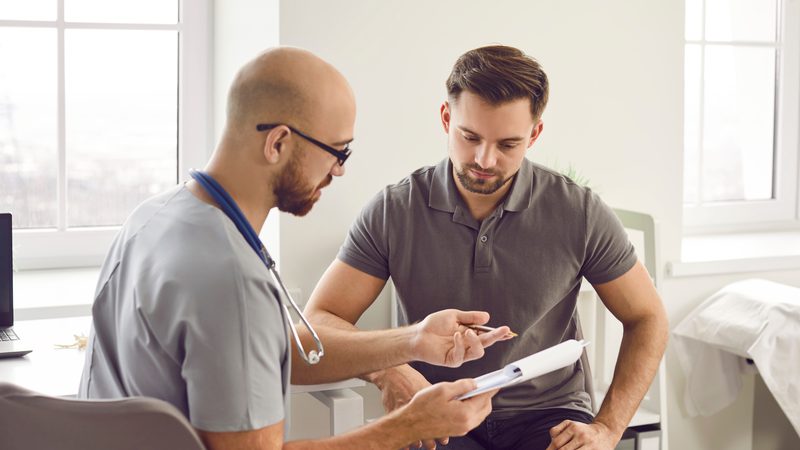Mic’d up in medicine: Understanding the legal framework for audio and video recordings in clinical practice
AuthorsPaddy FearnonThorrun Govind
7 min read

In an era where smartphones are ubiquitous and digital documentation is second nature, the question of whether patient interactions can be recorded by either clinicians or patients has become a pressing issue across UK healthcare providers. There are legal grey areas surrounding both overt and covert recordings, whether for documentation, training, or social media purposes.
Here, Paddy Fearnon and Thorrun Govind explore the legal framework, professional guidance and practical recourse available to clinicians when faced with unauthorised recordings.
Under UK law, patients are generally permitted to record their own medical consultations, including covertly — provided the recording is for personal use. This is supported by Article 2 of the UK GDPR, which exempts personal or household activities from data protection laws. The British Medical Association (BMA) confirms that there is no legal requirement for patients to seek consent before recording a consultation for private use.
While consultations may take place in public settings such as hospitals, they are still considered private interactions between the patient and clinician. This is reinforced by the General Medical Council (GMC), which states that the duty of confidentiality applies in all clinical environments (NHS or private) and that clinicians must take reasonable steps to protect patient privacy regardless of the setting. Therefore, recordings made solely for personal use, without capturing identifiable information about others, are generally lawful.
However, care must be taken not to record other patients or staff unintentionally, as this could infringe on their privacy rights and potentially breach data protection laws.
Benefits to patient recordings
There are of course legitimate reasons and potential benefits when patients record their consultations – especially when done openly and with consent. The BMA acknowledges that such recordings can support patient understanding, aid memory retention and improve adherence to treatment plans. For patients with complex conditions, language barriers, or cognitive impairments, recordings can also serve as a valuable reference.
Moreover, consensual recordings can foster transparency and trust, helping to clarify clinical advice and reduce misunderstandings. In some cases, they may even support continuity of care by allowing patients to share recordings with family members or other healthcare providers.
However, the situation becomes more complex when recordings are shared publicly or used in a way that breaches the confidentiality of others. National guidance from UK healthcare regulators emphasises that while patients may record consultations for personal use, sharing identifiable information about staff or other patients without consent may breach confidentiality obligations, unless there is clear legal justification or overriding public interest.
A clear legal justification refers to circumstances where disclosure is permitted by law, such as a court order, statutory duty, or regulatory requirement. For example, if the recording is part of a legal investigation or required by a safeguarding authority, it may be lawfully disclosed.
An overriding public interest applies when the benefits of disclosure outweigh the duty of confidentiality. This might include situations where the recording reveals serious misconduct, risk to public safety or unlawful behaviour. In such cases, the disclosure must be proportionate, necessary, and justifiable under common law principles.
These exceptions are narrowly defined and must be assessed carefully. NHS organisations are expected to document the rationale for any such disclosures and seek legal advice where appropriate.
A matter of consent
When clinicians record patient interactions, such as through Audio-Visual Technologies (AVTs) for training or documentation, explicit consent is required. Organisational data protection policies typically require that consent for recording is clear, specific, and properly documented – particularly when sensitive personal data is involved.
Recordings made by staff without patient consent could breach both the UK GDPR and professional standards set by the GMC, which emphasise the importance of trust, transparency and respect for patient autonomy.
However, clinicians have the right to decline being recorded. While patients may record for personal use, staff are not obligated to participate in recordings if they do not consent. If a staff member objects, efforts should be made to find an alternative clinician. If that’s not possible, the patient may still receive care, but without the recording.
This principle is grounded in both legal and professional standards:
- Consent and autonomy: Under UK law, consent must be freely given, informed, and specific. This applies not only to patients but also to staff. A clinician’s image, voice, and professional opinions are considered personal data under the UK GDPR, and recording them without consent, particularly for purposes beyond personal use, may infringe on their data protection rights.
- Employment and workplace rights: Healthcare professionals are entitled to a safe and respectful working environment. This is supported by the Health and Safety at Work etc. Act 1974, which places a duty on employers to ensure the welfare of their staff, and by the Equality Act 2010, which protects against harassment and discrimination. Being recorded without consent, particularly where the recording may be shared or misused, can undermine these rights and may warrant action under organisational policies, professional standards, or employment law.
- Professional Guidance: The GMC and Nursing and Midwifery Council (NMC) both emphasise the importance of mutual trust and respect in clinical relationships. If a clinician feels that being recorded compromises their ability to provide care or communicate openly, they are within their rights to decline.
This aligns with the broader ethical principle of mutual consent in healthcare interactions. While patients have rights to transparency and access to information, these must be balanced against the rights of clinicians to privacy, dignity, and professional integrity.
Recourse for unauthorised recordings?
If a patient or family member records a clinician without consent and the recording is shared publicly (e.g. on social media), the clinician may have grounds to request its removal. Legal recourse may include data protection complaints under UK GDPR or defamation or harassment claims if the content is misleading or abusive.
Many healthcare providers also have internal policies that prohibit unauthorised recordings on hospital premises. These can be enforced through formal complaints, HR procedures or disciplinary action. However, requesting deletion of a recording made for personal use is more difficult unless it breaches another law or policy.
If a clinician records a patient without obtaining valid consent, the patient may have several avenues for recourse. These include similar data protection complaints, disciplinary proceedings based on professional conduct standards or pursuing a formal complaint with the healthcare organisation, which may trigger an internal investigation and appropriate remedial action.
In both cases, transparency, documentation, and adherence to organisational policies are essential for resolving disputes and maintaining trust.
Best practice for clinicians
Given the legal and ethical complexities surrounding recordings in clinical settings, it’s important for healthcare professionals to adopt proactive and consistent practices. These not only protect staff and patients but also help maintain trust and transparency in the care environment. The following steps are recommended:
- Be proactive: Ask patients if they intend to record and explain your position clearly.
- Know your policy: Familiarise yourself with your organisations guidance on recordings. If none exists, advocate for one.
- Document concerns: If a recording is made without consent, note it in the patient’s record and escalate if necessary.
- Seek support: Legal and regulatory teams can advise on the next steps if a recording is shared inappropriately.
Talk to us
Our team of specialist healthcare Regulatory solicitors are well-versed in navigating the complex legal landscape, advising clinicians to ensure compliance with legislation and regulations.
Talk to us by giving us a call on 0333 004 4488, sending us an email at hello@brabners.com or completing our contact form below.


Talk to us
Loading form...